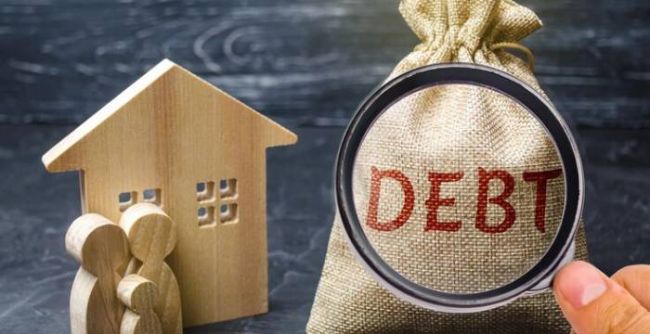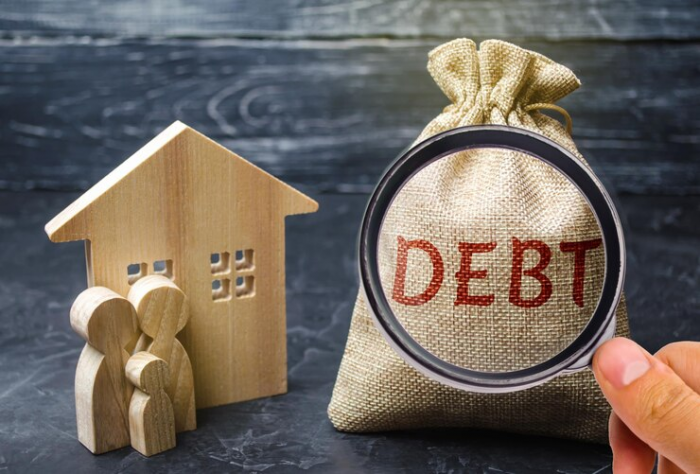Tips & Tricks
7 min read
Secured vs Unsecured Debt Consolidation Loans Explained


Confused between secured and unsecured debt consolidation loans?
You’re not the only one. Many people trying to manage multiple debts hear these terms but don’t fully understand what they mean or which one suits their situation better. Both types of loans are used to combine different debts into one, but the way they work and what they require from you can be quite different.
The good part is, once you understand the basic difference, it becomes much easier to choose the one that works best for your income, lifestyle, and peace of mind.

Debt consolidation is when you take out a new loan to pay off multiple existing debts. Instead of keeping track of several credit cards, personal loans, or payday loans, you combine them into one single payment.
Plus, it can reduce your interest rate and help you pay off your debt faster if managed well. It brings some financial order, especially if you’ve been juggling many payments.
A secured loan uses collateral (e.g., home equity, vehicle). Because the lender has security, you often get:
Best for: Borrowers with stable income, significant debt, and valuable collateral who want the lowest possible rate.
| Factor | Secured Consolidation | Unsecured Consolidation |
|---|---|---|
| Collateral | Required (home, car) | Not required |
| Typical Rate | Lower | Higher |
| Loan Amount | Higher | Lower |
| Speed | Slower (verification) | Faster |
| Risk | Asset can be repossessed | No asset risk |
| Best For | Large balances, rate minimization | Convenience, no collateral |
An unsecured debt consolidation loan doesn’t need any assets as security. You’re approved based on your income, credit score, and repayment history. The lender takes more risk in this case, so the interest rate is usually a little higher compared to secured loans.
Since there’s no collateral involved, you don’t have to worry about losing anything if you miss a payment. But at the same time, it’s very important to stay regular with payments, as missing them can still impact your credit score and lead to other issues.
The right option depends on what you own, how much risk you’re okay with, and what kind of monthly payment you can manage. If you have an asset and want to reduce your interest rate, a secured loan might work better. But if you want to avoid giving any guarantee or don’t own any major asset, unsecured loans are safer.
Also, it depends on the size of your debt. If you have a large amount to pay off, secured loans may allow you to borrow more. But if your total debt is manageable and you’re just looking for convenience, unsecured loans are perfectly fine.
Before going for any type of loan, it’s important to review your current income and expenses. Ask yourself:
Let’s be honest—everyone’s talking about AI in social media, but not enough people are backing it up with numbers. If you’re planning to use AI tools, here’s what the data actually says:
Also, think about how your lenders are managing the loan process. Tools like mortgage CRMs play a crucial role here by helping loan officers offer faster support, automate follow-ups, and reduce friction for borrowers. If you’re exploring debt relief via home equity or mortgage refinancing, this guide on how mortgage CRMs help close more deals is a useful look into how the process is evolving to support both lenders and consumers.
Many people in Canada are using debt consolidation options to manage their finances better. Whether it’s secured or unsecured, the goal is to make your debt easier to handle by combining it into one clear plan. You can explore practical solutions offered by trusted providers, such as farber ca, to get started.
It helps reduce stress, avoid missed payments, and even improve your credit score over time. When you know what to expect each month, it becomes easier to budget and avoid surprises.
You can also improve your monthly cushion by trimming non-essential spending. For example, some households redirect savings found through refurbished tech buying after reading a breakdown of how the refurbished marketplace operates, or by reassessing travel memberships using an honest look at a flight-deal club model—small optimizations that help you meet your new payment comfortably.
Let’s say you own a small flat and have three different loans: one personal loan, one credit card, and one car loan. Every month, you’re paying three different EMIs. If you take a secured debt consolidation loan against your flat, you can combine all three loans into one.
The new EMI might be lower, and you’ll pay less total interest. But remember, if you miss payments, your property is at risk. That’s why this option is best for people with steady income and good control over their spending.
Now, take the case of someone who’s renting a house and has two credit cards and a personal loan. They want to reduce their monthly load but don’t have anything to offer as security. In this case, an unsecured loan is better.
It still allows them to combine all debts and make one payment each month. There’s no risk to property, and as long as they pay on time, their credit stays in good shape.
Example assumes equal balances and simplified APRs for clarity. Your terms will vary by lender and credit profile.
| Scenario | Balance | APR | Term | Est. Monthly | Est. Total Interest |
|---|---|---|---|---|---|
| Secured | $20,000 | 9% | 60 mo | ~$415 | ~$4,900 |
| Unsecured | $20,000 | 14% | 60 mo | ~$466 | ~$7,960 |
What this shows: Secured loans can lower the monthly and total interest, but introduce collateral risk. Unsecured costs more, but keeps assets safe.
Both secured and unsecured loans can help improve your credit score over time. As long as you make payments on time, your score can start going up. Also, since you're reducing the total number of accounts and using less of your available credit, your score improves in other ways, too.
Before making the final call, check these things:
Both secured and unsecured debt consolidation can simplify your finances. If you need lower rates and a higher limit, and you accept collateral risk, secured may fit. If you prefer no asset pledge and fast setup for moderate balances, unsecured can be the safer path. Choose the option that aligns with your income stability, risk tolerance, and total cost—and back it up with a budget you can keep.
Be the first to post comment!